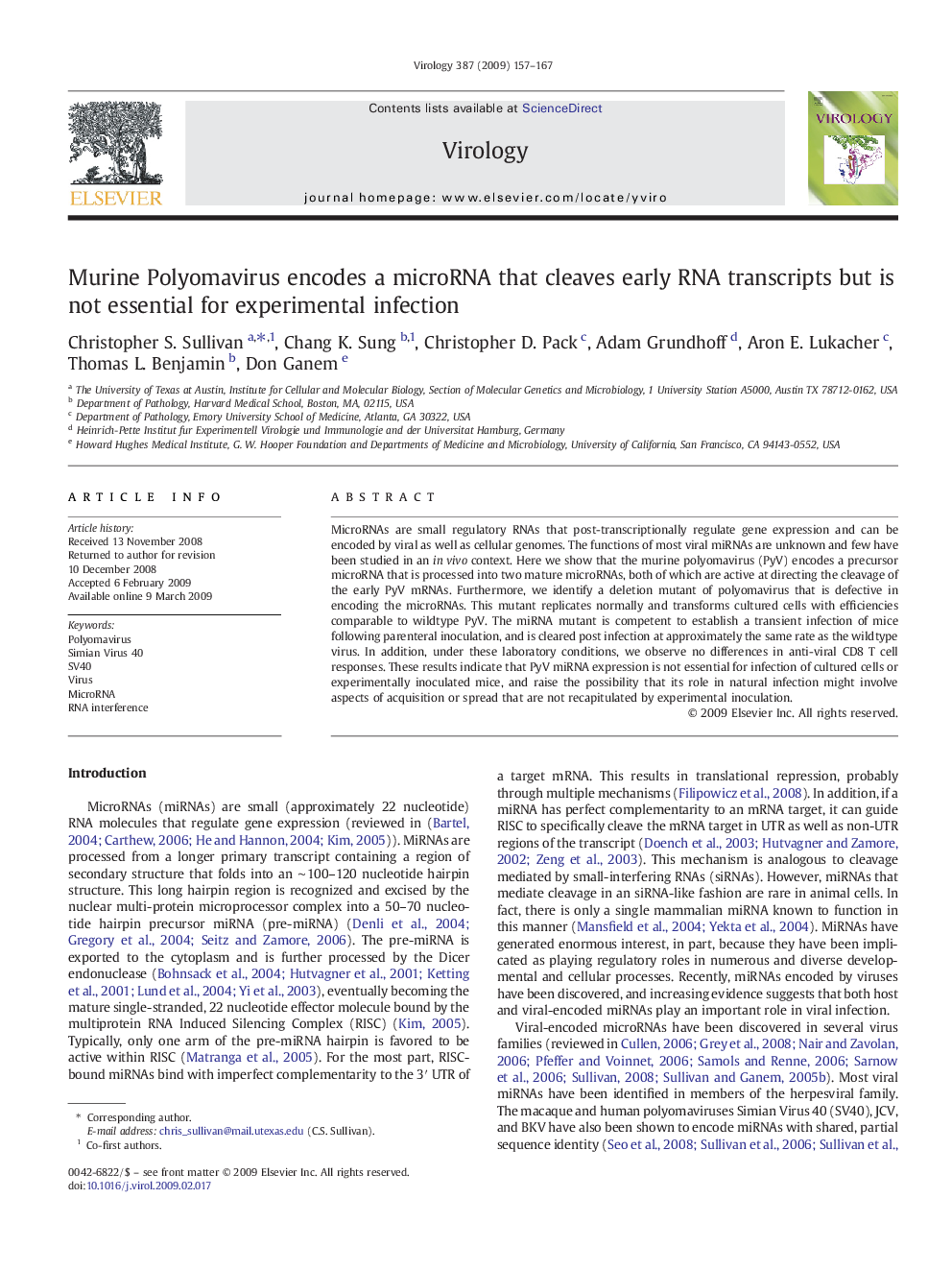| Article ID | Journal | Published Year | Pages | File Type |
|---|---|---|---|---|
| 3425461 | Virology | 2009 | 11 Pages |
MicroRNAs are small regulatory RNAs that post-transcriptionally regulate gene expression and can be encoded by viral as well as cellular genomes. The functions of most viral miRNAs are unknown and few have been studied in an in vivo context. Here we show that the murine polyomavirus (PyV) encodes a precursor microRNA that is processed into two mature microRNAs, both of which are active at directing the cleavage of the early PyV mRNAs. Furthermore, we identify a deletion mutant of polyomavirus that is defective in encoding the microRNAs. This mutant replicates normally and transforms cultured cells with efficiencies comparable to wildtype PyV. The miRNA mutant is competent to establish a transient infection of mice following parenteral inoculation, and is cleared post infection at approximately the same rate as the wildtype virus. In addition, under these laboratory conditions, we observe no differences in anti-viral CD8 T cell responses. These results indicate that PyV miRNA expression is not essential for infection of cultured cells or experimentally inoculated mice, and raise the possibility that its role in natural infection might involve aspects of acquisition or spread that are not recapitulated by experimental inoculation.
